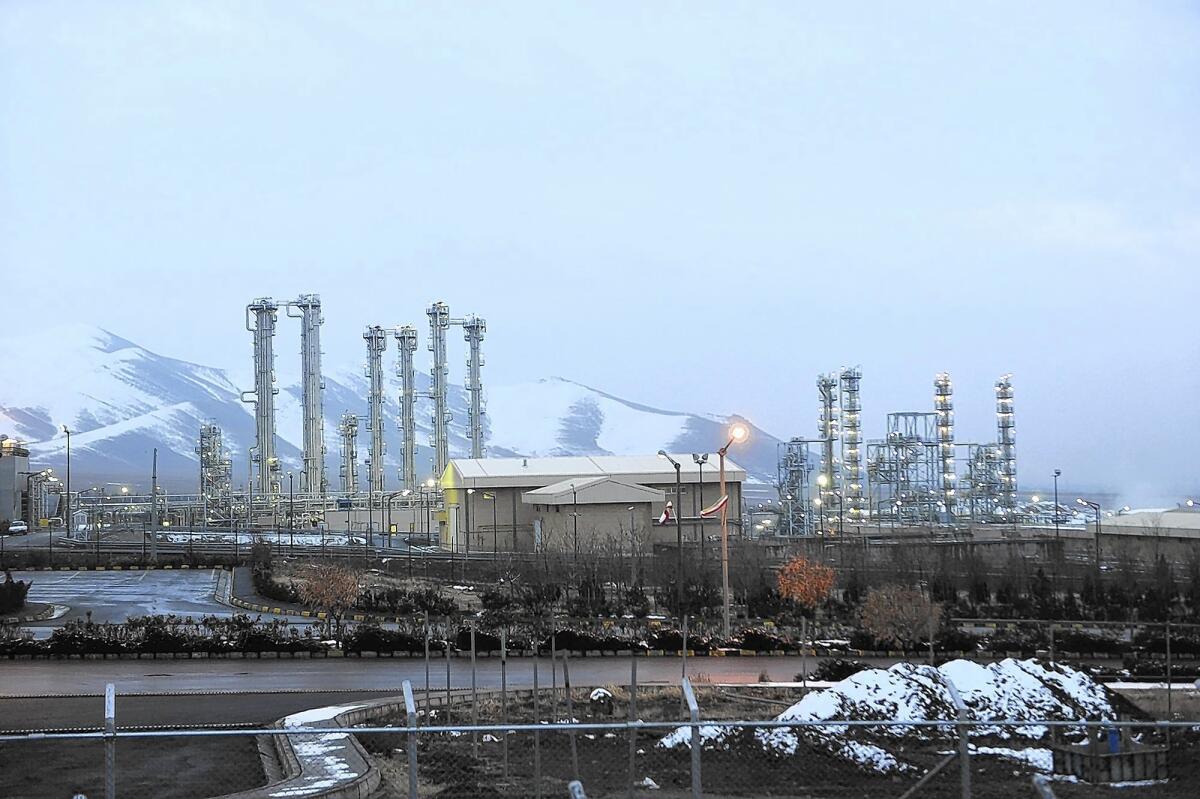Iran says nuclear dispute with the West ‘virtually resolved’

TEHRAN — Iran has “virtually resolved” its dispute with world powers over a planned nuclear plant that could produce weapon material, the chairman of Iran’s nuclear agency told a state news agency.
Ali Akbar Salehi, head of Iran’s nuclear program, told the official Al Alam news channel Saturday that Iran had agreed to redesign the Arak plant, about 150 miles southwest of Tehran, to produce far less plutonium, a key ingredient in nuclear weapons.
Salehi said the 80% reduction in plutonium production capability at Arak had been “welcomed” by the six countries engaged in talks with Iran about its nuclear program: the United States, Russia, China, Britain, France and Germany.
There was no immediate comment from representatives of any of the so-called P5-plus-1 group.
The global powers worry that the plant would enable Iran to acquire weapons-grade plutonium, an alternative ingredient to highly enriched uranium.
The negotiations, which are slated to resume May 13 in Vienna, are aimed at reaching a comprehensive deal that would allay the West’s fear that Iran intends to join the exclusive group of nations with nuclear weapons, while leaving Tehran free to pursue peaceful use of nuclear technology.
Major issues remained unresolved, however, and neither side has provided details about developments in the talks beyond statements that “progress” was being made.
Iran says its nuclear program is strictly for peaceful purposes such as power generation, research and production of isotopes for medicine and agriculture.
Western countries have responded to Iran’s program by imposing a series of economic sanctions, including blocking access to international banking and thwarting oil exports, which have battered Iran’s economy.
Plutonium could provide an easier way to construct a nuclear bomb than uranium, which is technologically difficult to enrich. In November, Iran agreed to restrict such enrichment and pledged to convert stockpiles of highly enriched uranium to substances less suitable for weapons production. In exchange, the six nations agreed to grant limited relief from sanctions.
A July 20 deadline was set for crafting a comprehensive nuclear deal, but the parties can agree to extend talks six more months.
Ending sanctions has been a major goal of Iranian President Hassan Rouhani, whose overtures to the West have met resistance from domestic hard-liners and from U.S. lawmakers opposed to rapprochement.
Special correspondent Mostaghim reported from Tehran and Times staff writer McDonnell from Beirut.
More to Read
Sign up for Essential California
The most important California stories and recommendations in your inbox every morning.
You may occasionally receive promotional content from the Los Angeles Times.










